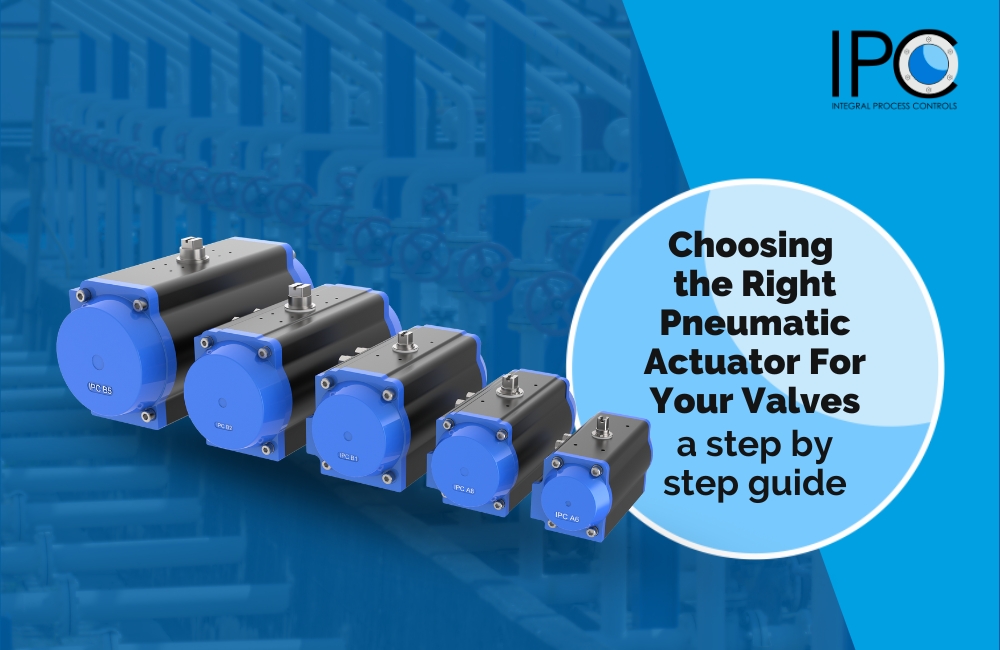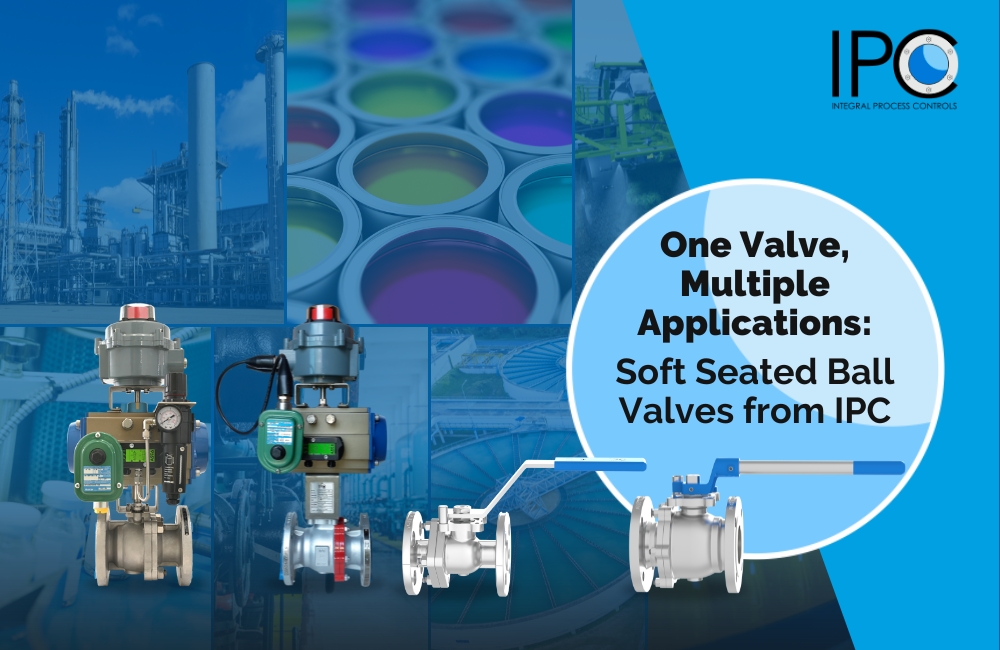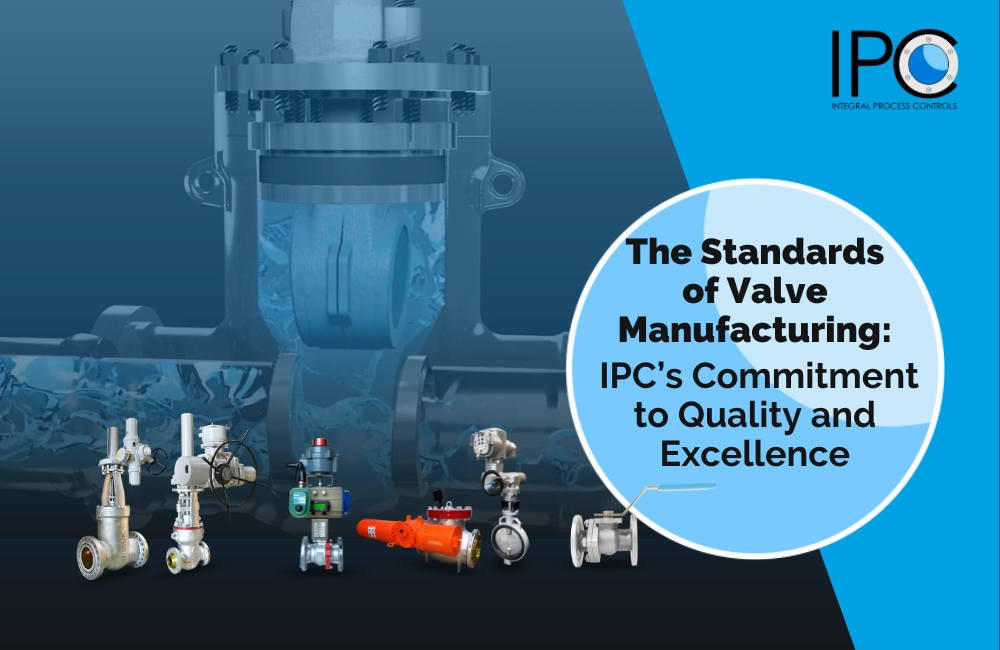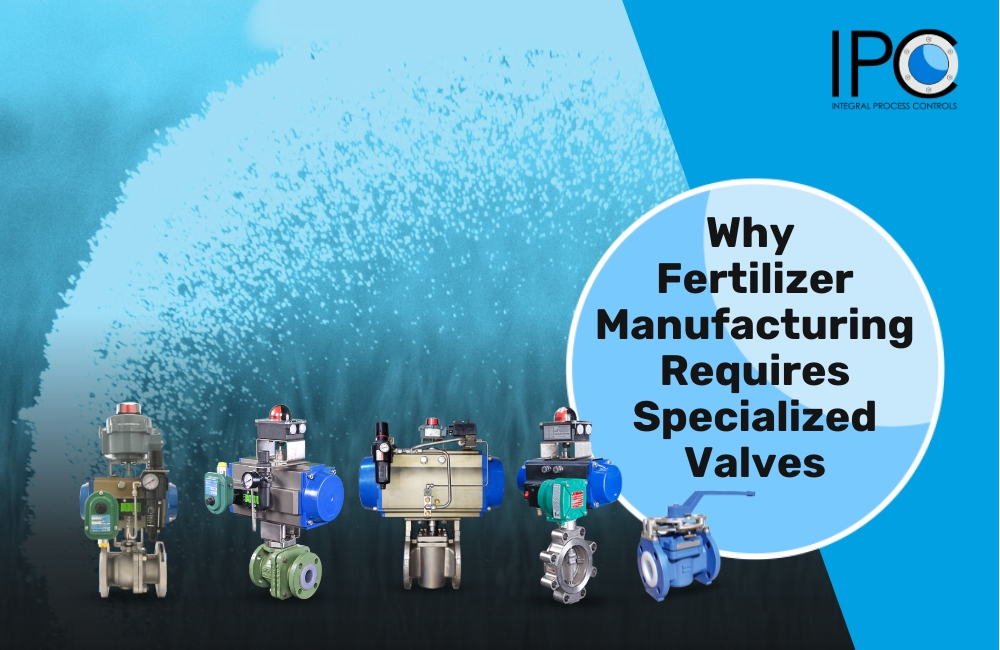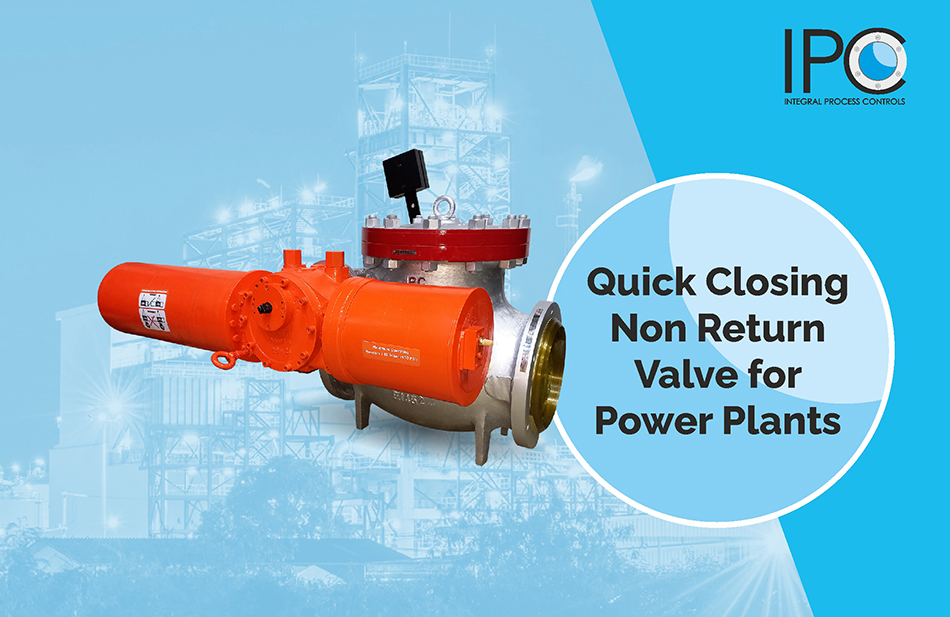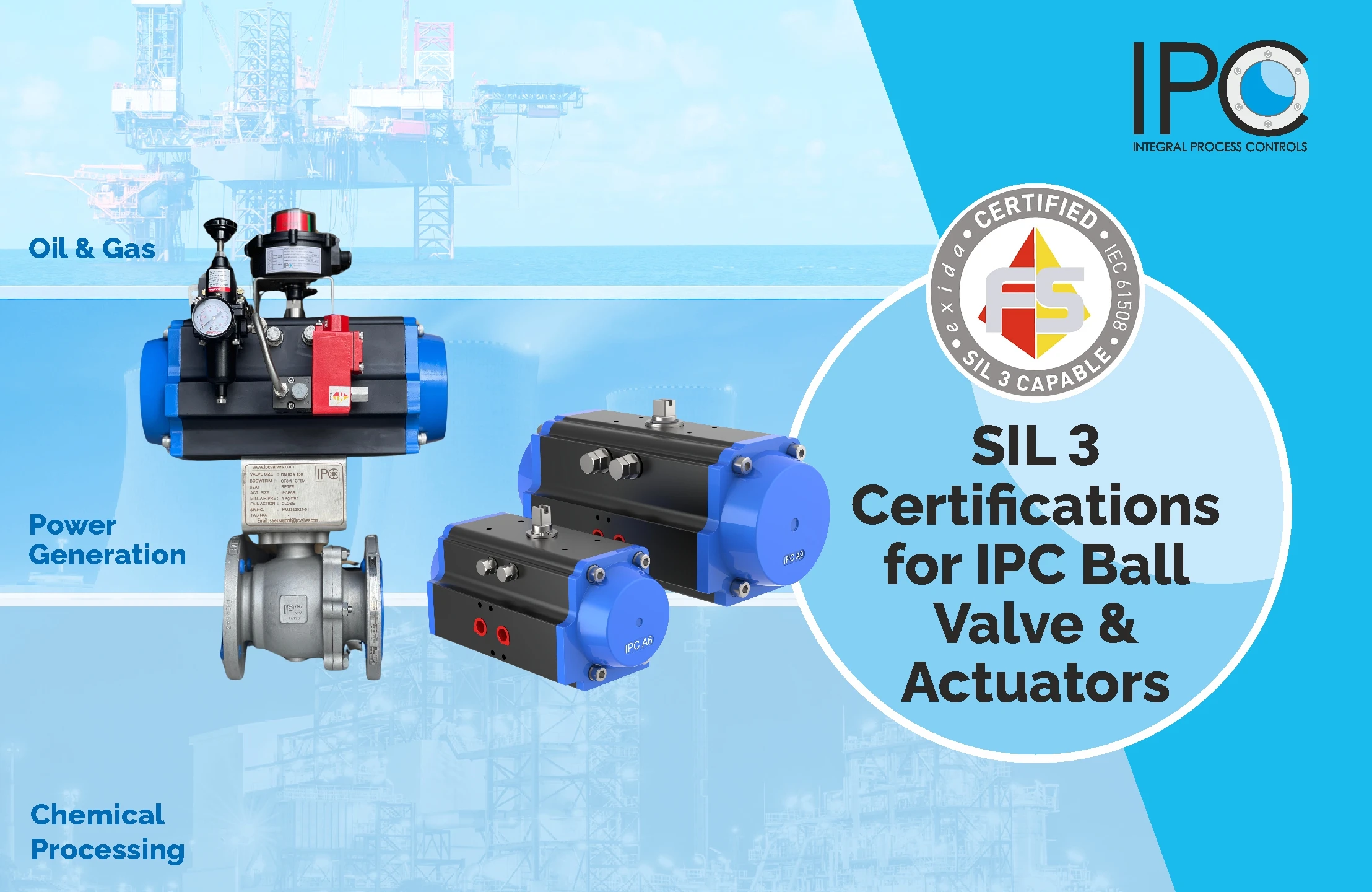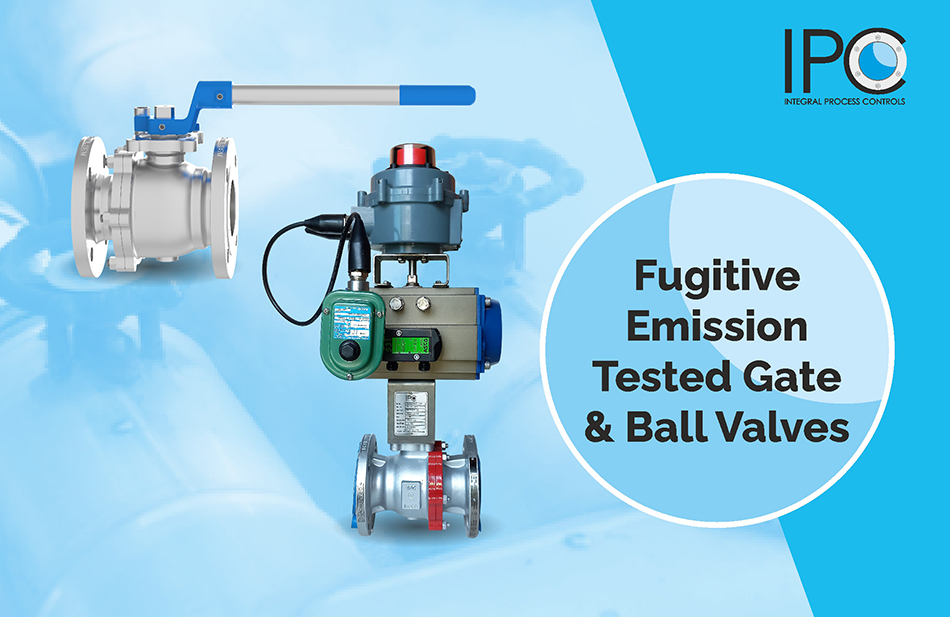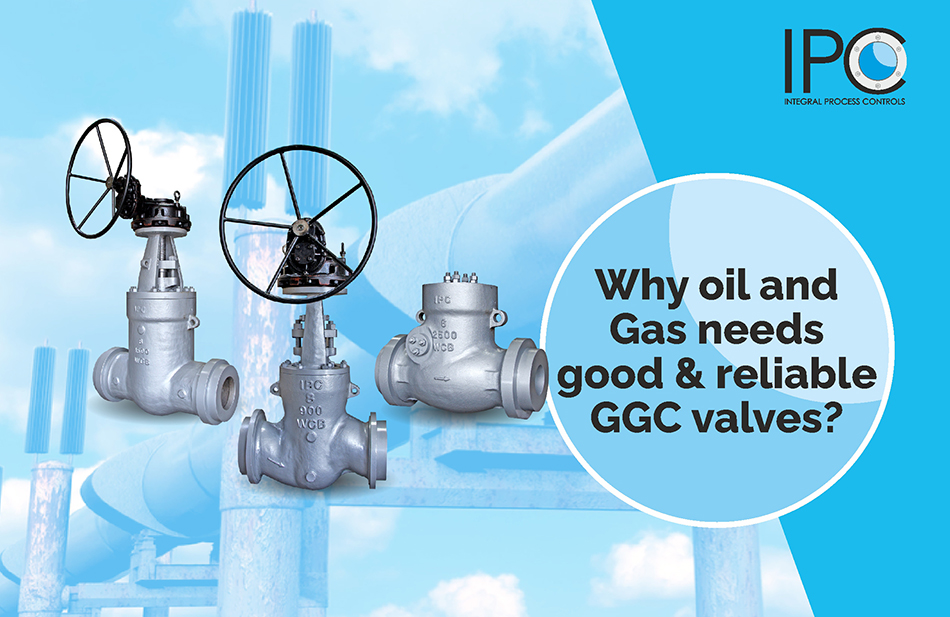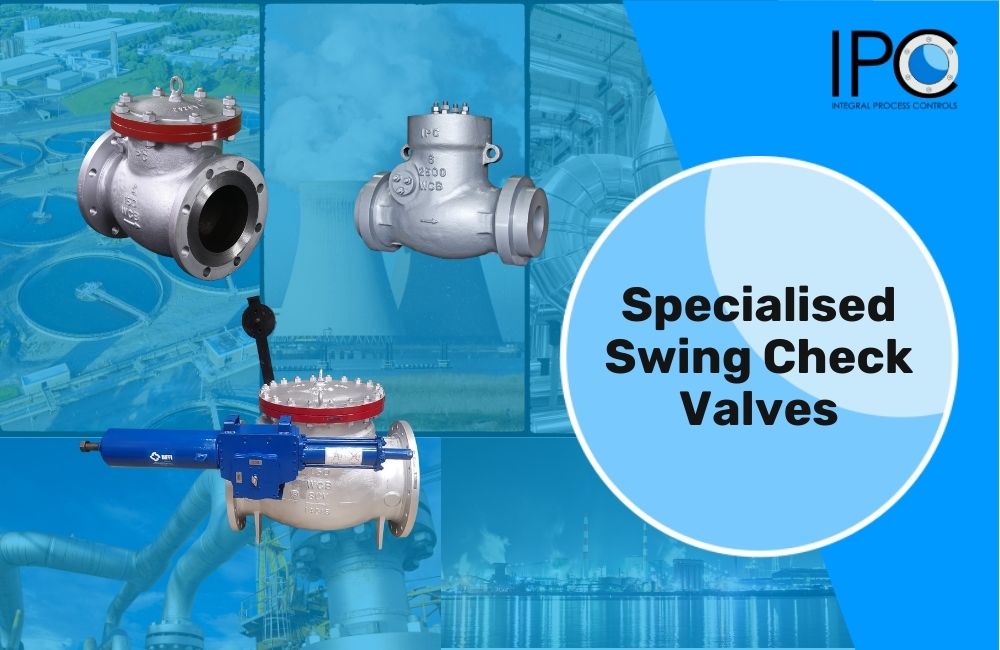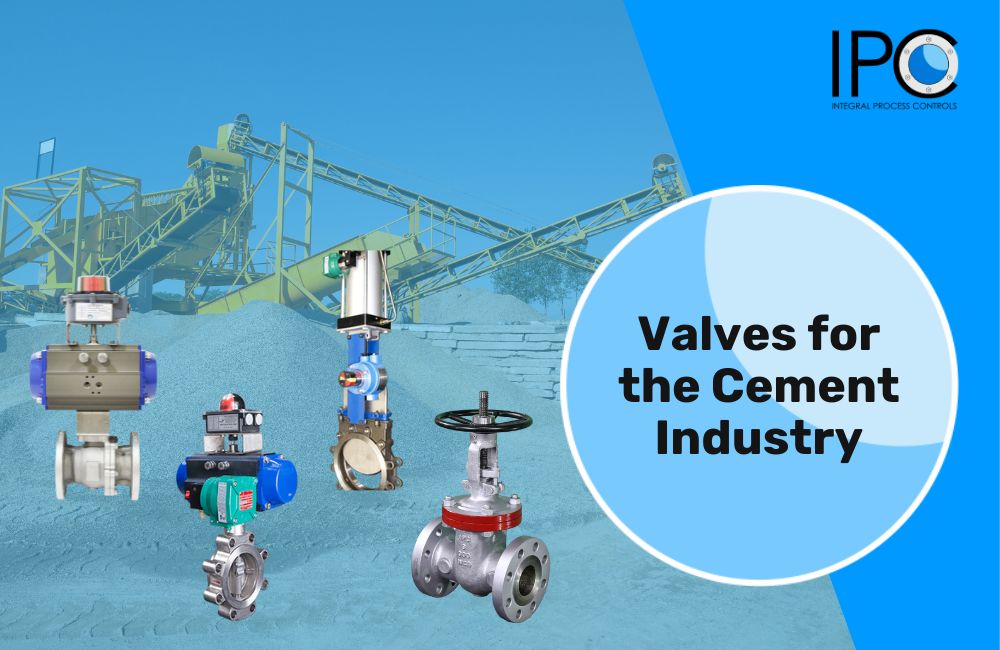Pneumatic actuators are essential components in industrial automation applications, providing reliable and efficient control for various applications. Choosing the right pneumatic actuator for your specific needs can significantly enhance your system’s performance and longevity. At IPC Valves, we understand the importance of making an informed decision.
Here’s a step-by-step guide to help you select the perfect pneumatic actuator.
Step 1: Understand Your Application
- Identify the Type of Valve:
Determine the type of valve you are working with, such as ball, butterfly or globe valves. Each valve type requires a specific actuator configuration. - Determine the Function:
Understand the function of the actuator in your application. Will it be used for on-off control, throttling or modulating service? Knowing the function helps in selecting the appropriate actuator.
Step 2: Assess Operating Conditions
- Environmental Factors:
Evaluate the operating environment. Consider factors like temperature, humidity, dust and potential exposure to corrosive substances. For harsh environments, select actuators with appropriate protective coatings and sealing. -
Pressure and Load Requirements:
Assess the pressure and load requirements of your system. Ensure the actuator can handle the maximum pressure and load it will encounter.
Step 3: Determine Torque Requirements
- Calculate the Torque:
Determine the torque required to operate your valve. This is crucial for ensuring the actuator can provide sufficient force. Consult the valve manufacturer’s torque specifications and consider safety factors. -
Select the Right Actuator Size:
Choose an actuator that meets or exceeds the torque requirements including safety factors. Undersized actuators can lead to operational failures, while oversized actuators can be unnecessarily expensive and consume more energy.
Step 4: Choose the Actuator Type
- Single-Acting vs. Double-Acting:
Decide between single-acting and double-acting actuators. Single-acting actuators use air pressure to move the valve in one direction and a spring to return it. Double-acting actuators use air pressure for movement in both directions. -
Spring-Return Option:
For safety applications, consider spring-return actuators, which ensure the valve returns to a default position (open or closed) in case of air supply failure.
Step 5: Evaluate Air Supply Requirements
- Air Supply Quality:
Ensure your air supply is clean and dry. Contaminants can damage the actuator and reduce its lifespan. Use appropriate filters and dryers to maintain air quality. - Air Pressure and Volume:
Verify that your air supply can provide the necessary pressure and volume for the actuator to operate efficiently. Insufficient air supply can lead to performance issues.
Step 6: Factor in Maintenance and Support
- Ease of Maintenance:
Choose actuators that are easy to maintain and have readily available spare parts. Simplified maintenance can reduce downtime and operational costs. - Technical Support:
Consider the availability of technical support from the manufacturer. Reliable support can assist with troubleshooting and ensure smooth operation.
Step 7: Cost and Budget Considerations
- Initial Cost vs. Lifecycle Cost:
While it’s important to consider the initial cost, also factor in the total lifecycle cost of the actuator, including maintenance, energy consumption and potential downtime costs. - Quality vs. Price:
Don’t compromise on quality for the sake of a lower price. Investing in a high-quality actuator can lead to better performance and longer service life, providing better value in the long run.

